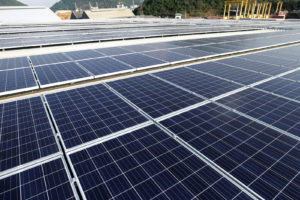The time it takes for solar panels to pay for themselves, also known as the payback period, can vary depending on several factors, including the cost of the solar panel system, the amount of electricity it generates, the cost of electricity from the grid, any available incentives or tax credits, and the local solar resource. On average, solar panels tend to have a payback period ranging from 7 to 10 years.
In recent years, the cost of solar panels has been decreasing, while their efficiency and lifespan have been improving. These trends have contributed to shorter payback periods. Additionally, government incentives and tax credits can further accelerate the return on investment.
To calculate the payback period for solar panels, you would need to consider the upfront cost of the system, including installation, maintenance, and financing (if applicable). Then, estimate the annual electricity savings based on the system's capacity and local solar conditions, as well as the cost of electricity from the grid that you would otherwise have paid.
It's worth noting that while the payback period is an important consideration, solar panels can continue to generate electricity and save you money well beyond that point. They generally have a lifespan of 25 to 30 years or more, and the electricity they produce during that time can result in significant long-term savings. Some factors to consider…
Energy usage: The payback period is influenced by the amount of electricity you consume. Generally, if you have higher energy usage, the payback period will be shorter since you'll be able to offset a larger portion of your electricity bill with solar power.
Net metering: Net metering is a policy in many regions that allows you to feed excess electricity generated by your solar panels back into the grid, earning credits. These credits can be used to offset your electricity consumption during times when your panels are not generating enough power, such as at night. Net metering can accelerate the payback period by maximizing your solar energy savings.
Maintenance and warranty: Consider the maintenance requirements and warranty coverage of the solar panel system. Proper maintenance ensures optimal performance and longevity. Additionally, a comprehensive warranty can protect you against unexpected issues and repair costs, providing peace of mind throughout the life of the panels.
Rising energy costs: Take into account the potential for future increases in the cost of electricity from the grid. If electricity rates continue to rise over time, your solar panels will save you even more money, resulting in a shorter payback period.
Environmental impact: Although the payback period primarily focuses on financial returns, it's important to remember the environmental benefits of solar panels. By reducing reliance on fossil fuels and lowering carbon emissions, solar energy contributes to a cleaner and more sustainable future.
Location and solar resource: The amount of sunlight your location receives plays a significant role in the payback period. Areas with abundant sunshine and fewer shading obstacles will generate more electricity, resulting in faster payback periods. Factors such as latitude, climate, and local weather patterns can affect solar panel performance and, consequently, the time it takes to recoup your investment.
Incentives and tax credits: Government incentives and tax credits can significantly impact the payback period of solar panels. These can include rebates, grants, or tax credits at the federal, state, or local level. These financial incentives aim to encourage the adoption of renewable energy and can substantially reduce the upfront cost of installing solar panels, thus shortening the payback period.
Financing options: If the upfront cost of purchasing and installing solar panels is a barrier, consider financing options such as solar loans or power purchase agreements (PPAs). Solar loans allow you to spread the cost over time, while PPAs involve a third party owning and maintaining the solar panels on your property, and you pay for the electricity generated at a predetermined rate. These options may affect the payback period, so it's important to carefully evaluate the terms and conditions.
Technology advancements: Solar panel technology continues to advance, resulting in increased efficiency and lower costs. As technology improves, newer panels may offer quicker payback periods compared to older models. Keeping an eye on emerging solar technologies and trends can help you make informed decisions about the timing of your solar panel investment.
Remember that while the payback period is an important factor, solar panels offer benefits beyond financial returns. They contribute to energy independence, reduce greenhouse gas emissions, and provide a hedge against rising electricity costs. Therefore, it's important to consider the long-term savings, environmental impact, and energy security when evaluating the payback period of solar panels.

Monday - Friday 7AM to 5PM
Saturday - by appointment only
We proudly serve Green Valley, Marana, Oro Valley, Saddlebrooke, Sahuarita, Tucson, Vail, and the surrounding areas.


